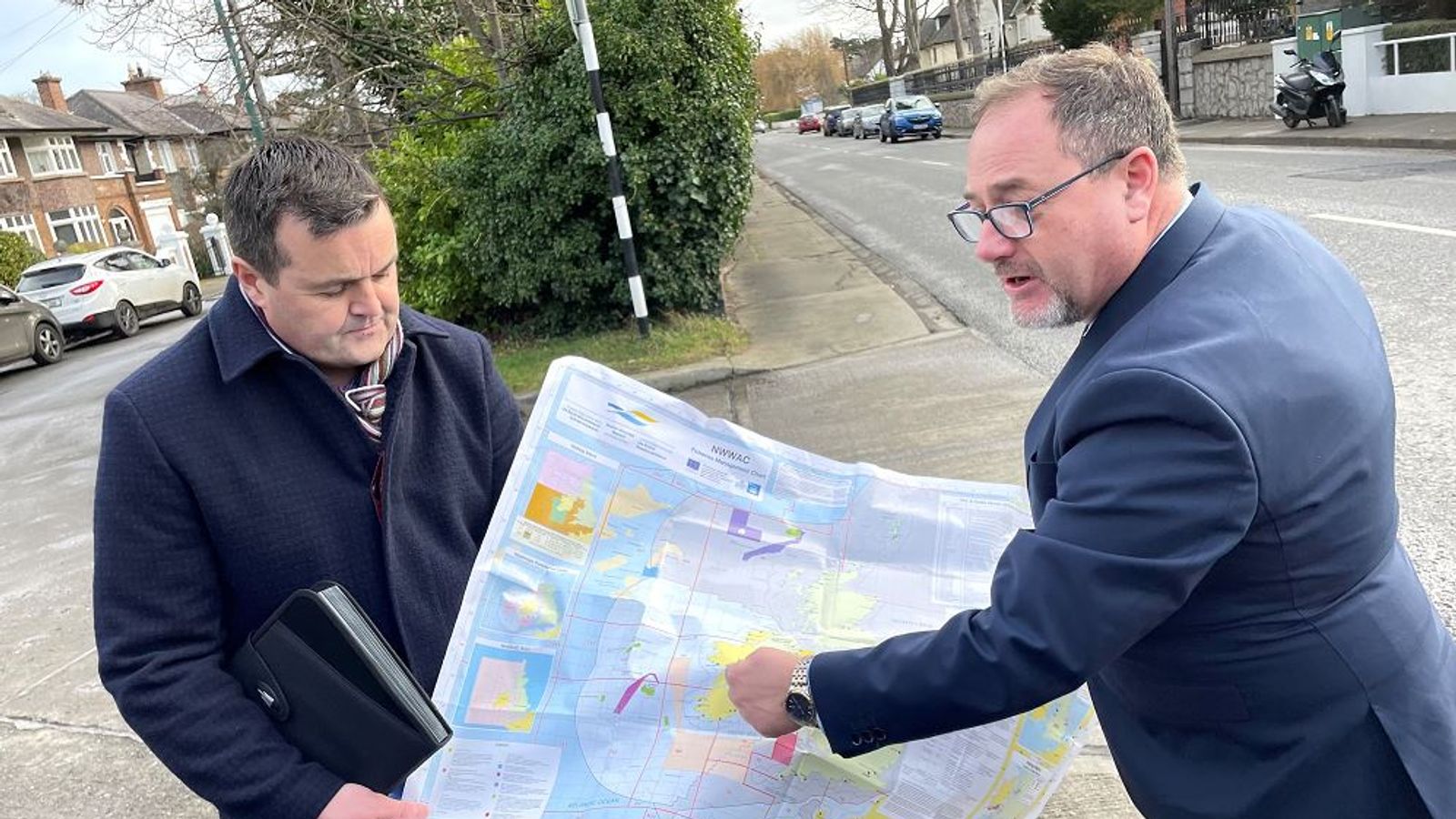Irish fishermen, who planned to disrupt Russian war games in lucrative fishing grounds off the Irish coast next week, have hailed a “very, very positive” meeting with the Russian ambassador to Ireland.
Emerging from the 50-minute talks in Dublin, fishing representatives said that a buffer zone will now be used for the five-day missile drills.
While the operational details still need final approval from Moscow, it is understood from sources that the buffer zone will be flexible and will keep 60 to 80 kilometres (37 to 49 miles) between Russian and Irish vessels.
The row, which garnered international media attention, came after Russia warned Irish aviation authorities of plans to hold live-fire naval drills, including the firing of rockets, around 240km (149 miles) off the southwestern coast of Ireland.
The exercises will take place outside Ireland’s territorial waters, but well inside its Exclusive Economic Zone (EEZ).
Earlier on Thursday, the Irish government issued a safety notice to all seafarers warning of the exact location of the Russian military exercises, which will be carried out from 3-8 February.
“The Russian Federation has indicated that the exercises will include the use of naval artillery and launching of rockets,” the government warning said.
Lisa Smith: Alleged Islamic State member and Irish ex-soldier encouraged British husband to take snipers course, court told
Man who took uncle to post office ‘didn’t realise he’d died’
COVID-19: Which coronavirus restrictions are changing in the UK and the Republic of Ireland?
Fishermen were angry at the potential disruption to their traditional fishing grounds, and this week said that up to 60 trawlers planned to peacefully disrupt the Russian plans by fishing as normal in the area.
Read more: Naval threat from Russia is ‘real’ but Ukraine will retaliate, vice admiral warns
The row, and the ensuing media attention, prompted Russian Ambassador Yury Filatov to invite fishing representatives for talks on Thursday.
‘Pathway for coexistence’
Speaking after the meeting, Brendan Byrne, chief executive of the Irish Fish Processors and Exporters Association, said they had reached “an accommodation where there is a pathway for coexistence for the naval exercises and for our fishing fleet” during the planned military drills next week.
He said a joint proposal for a “buffer zone” between the two sides would be used, pending final sign-off from the Russian government.
Mr Byrne said he had been impressed by how well briefed the Russian ambassador had been, and said the fishermen had been better treated by the Russians than by their own government.
“We’ve been given assurances by the ambassador that this will be safe,” said Patrick Murphy, chief executive of the Irish South and West Fish Producers Organisation.
“He accepted our concerns, and accepted the validity of what we’re entitled to do, which is to go fishing within our fishing grounds.”
Russia says ‘No threat to Ireland’
Russia had said that the live-fire exercises posed “no threat” to Ireland.
Please use Chrome browser for a more accessible video player
Mr Filatov had told reporters: “This is not in any way a threat to Ireland or anybody else.
“No harm is intended, no problem is expected.”
He described the international furore as “a non-story” that had been “hugely overblown”.
The Irish government, at a time of heightened tensions between Russia and the West, had described the Russian war games in Irish-patrolled water as “not welcome” and “not wanted”.






















